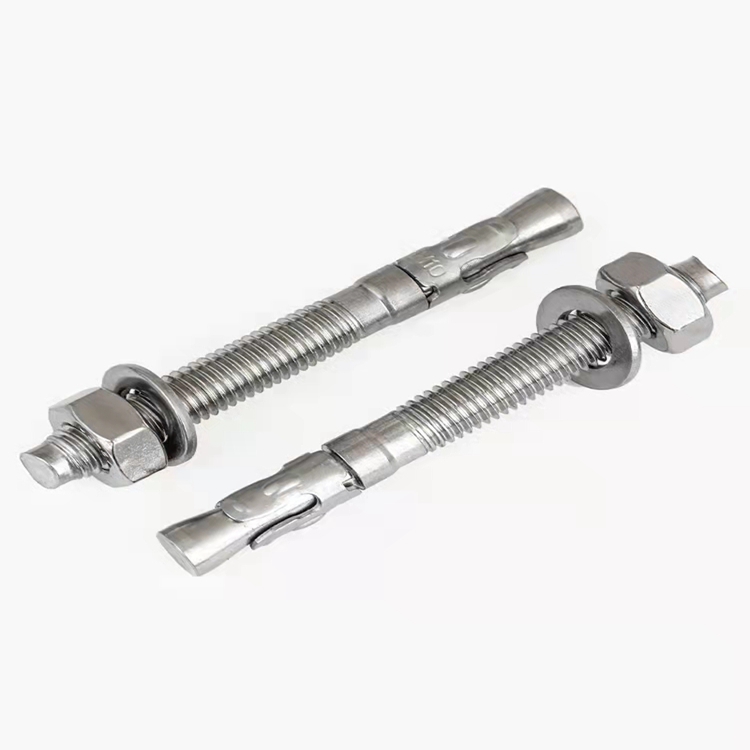batter stud bolt manufacturer
Samh . 22, 2024 09:21 Back to list
batter stud bolt manufacturer
The Importance of Quality in Stud Bolts Manufacturing
In various industrial applications, stud bolts play a crucial role, serving as essential fasteners that provide strong and reliable connections. Understanding their significance begins with recognizing the manufacturing process and the materials involved. This article will explore the world of stud bolt manufacturing, highlighting key aspects that impact quality and performance.
What are Stud Bolts?
Stud bolts are a type of fastener commonly used in construction, automotive, and industrial applications. Unlike traditional bolts, stud bolts have no head; they consist of a long cylindrical rod threaded on both ends. They are designed to be inserted into a tapped hole with nuts secured on each end. This design allows for a strong clamping force, making them ideal for high-stress environments.
Manufacturing Process
The manufacturing of stud bolts involves several critical steps that ensure their quality and reliability
.1. Material Selection The first step in stud bolt manufacturing is selecting the appropriate materials. Common materials include carbon steel, stainless steel, and various alloys, each chosen based on the specific application and required properties such as tensile strength, corrosion resistance, and temperature tolerance.
2. Forging and Machining Once the material is selected, several processes may be employed. Most high-quality stud bolts are forged to achieve a desired shape and grain structure. This forging process increases strength and ductility. After forging, the bolts undergo machining, where they are cut to length, and the threads are formed. Precision in machining is crucial, as any variations can lead to failure during use.
3. Heat Treatment Heat treatment is another vital process in enhancing the performance of stud bolts. By heating the bolts to high temperatures and then cooling them, manufacturers can improve hardness and strength. For some applications, this may include processes such as quenching and tempering, which enhance specific mechanical properties.
batter stud bolt manufacturer

4. Surface Treatment The final stages of manufacturing often involve surface treatments to enhance corrosion resistance and aesthetic appeal. Processes such as galvanization, painting, or the application of anti-corrosive coatings can significantly extend the life of the stud bolts, particularly in harsh environments.
Quality Control
Quality control is paramount in the stud bolt manufacturing process. Leading manufacturers implement rigorous testing protocols to ensure that every stud bolt meets industry standards. This may include
- Dimensional Inspection Measuring the length, diameter, and thread pitch to ensure conformity to specified tolerances. - Tensile Testing Assessing the material’s ability to withstand axial loads without failure. - Corrosion Testing Evaluating the effectiveness of protective coatings and material selection against environmental factors. - Microstructure Analysis Examining the material's internal structure to ensure proper grain alignment and lack of defects.
By adhering to these quality assurance measures, manufacturers can deliver stud bolts that not only meet but exceed customer expectations.
Applications of Stud Bolts
Stud bolts are employed across various sectors, illustrating their versatility and importance. In the construction industry, they are used to secure structural components, ensuring the stability and integrity of buildings and bridges. In the automotive sector, stud bolts are vital in engine assembly and other high-stress components, where reliability is non-negotiable. Additionally, within the petrochemical industry, stud bolts are essential for creating secure and leak-proof connections in pipelines and reactors, where any failure could lead to catastrophic results.
Conclusion
In summary, the manufacturing of stud bolts is a complex process that demands precision and attention to detail. From material selection to rigorous quality control protocols, each step is crucial in ensuring that these fasteners meet the demanding requirements of their respective industries. As industries continue to evolve and seek higher performance, the standards for stud bolt manufacturing will undoubtedly advance, leading to innovations that enhance strength, durability, and functionality. It is imperative for manufacturers to stay ahead of the curve by investing in advanced technologies and processes that will ensure the reliability and performance of stud bolts for years to come. By doing so, they not only contribute to the safety and effectiveness of countless applications but also solidify their reputation as leaders in the fastener industry.
Latest news
-
Top Wire Bolts Suppliers | AI-Optimized Fast Delivery
NewsAug.02,2025
-
Top Metric Wood Screw Companies | Durable & Reliable
NewsAug.01,2025
-
Premium Lawn Mower Handle Bolts Supplier | Fast Delivery
NewsJul.31,2025
-
Premium Silver Screws Supplier | High-Conductivity Fasteners
NewsJul.31,2025
-
Silver Screws Supplier: High-Quality Fasteners for Various Industries
NewsJul.30,2025
-
Top Spike Wheel Nuts Supplier - High Quality & Custom Options Available
NewsJul.29,2025
